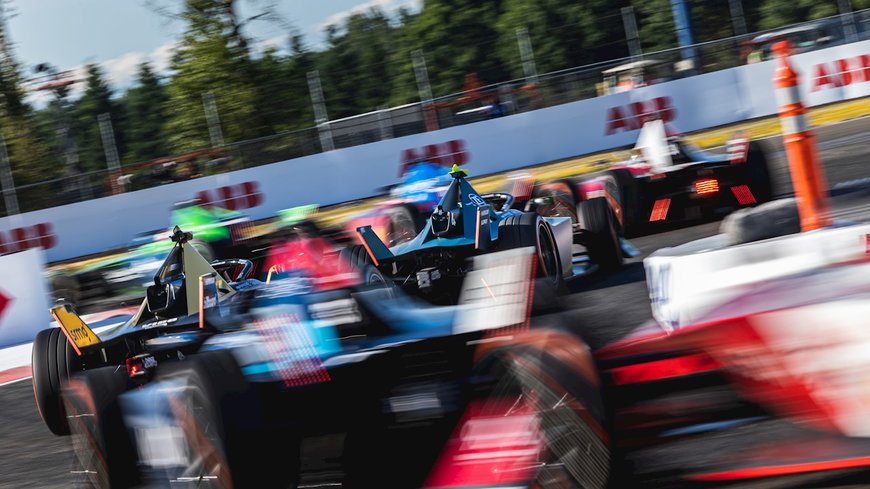Sustainable transportation showcased in ABB’s largest market
The pinnacle of sustainable mobility will once again be showcased in Portland, Oregon, when the ABB FIA Formula E World Championship returns to the US this weekend.
global.abb

- The ABB FIA Formula E World Championship returns to Portland, Oregon, the penultimate location of Season 10
- ABB’s technology solutions reduce emissions and support the energy transition
- Continued investment drives progress in ABB’s largest market
Energy management will be critical at the high-speed Portland International Raceway. The permanent circuit is 3.19km long with 12 turns and is sure to see a large number of overtakes and plenty of wheel-to-wheel action.
“In the U.S., ABB is investing in electrification and automation technology that supports the clean energy transition,” said Michael Plaster, EVP and lead business manager for ABB Electrification in the United States. “This technology is used in many projects across different sectors including sustainable mobility. The ABB FIA Formula E World Championship is a great example of this innovation, showcasing what is possible in our continued drive to electrify, optimize and decarbonize.”
One such innovative sustainability project is the first fully electric tugboat in the US – only the third of its kind to enter operations worldwide - which is being powered by ABB. The technology company has delivered an integrated electric propulsion system and advanced vessel control technology for Crowley’s pioneering eWolf tug, built for sustainable and safe operations at the Port of San Diego. Its operation will avoid 178 tons of nitrogen oxide (NOx), 2.5 tons of diesel particulate matter, and 3,100 metric tons of carbon dioxide (CO2) over the first 10 years – the equivalent of removing 350,000 gallons of gasolene from use according to EPA calculations.
In another first, ABB traction systems will drive the first hydrogen-powered train in the US. Just 1% of heavy rail networks in the country are electrified, resulting in a continued dependence on outdated diesel-powered locomotives. Swiss manufacturer, Stadler Rail, has the solution: redesigning its widely-used rolling stock to accommodate a fuel cell, battery, and hydrogen supply. To facilitate the project, ABB is providing the traction converter, DC/DC converter, three Bordline® ESS 28kWh battery packages, and a battery thermal management system. The fuel cell / battery combination stores enough energy to operate the train over 285 miles daily, with the traction system as a whole designed for 25,000 hours of operating life.
ABB has been operating in the US for more than 100 years, and the country is its largest market. The company is accelerating its growth strategy in the US and has invested more than $14 billion since 2010. An example of ABB’s long-term commitment to the North American market was showcased when ABB broke ground on a new US manufacturing facility in Albuquerque, New Mexico, to support the electric utility sector and transition to clean energy. The investment, announced last year, of more than $40 million further strengthens ABB’s US manufacturing footprint with inventory for electric utility, renewable energy and distribution partners globally. The 90,000-square-foot greenfield facility is expected to begin operations later this year to meet increased demand for ABB’s leading Elastimold® cable accessories and solutions, used to improve grid hardening and help power millions of homes, businesses and communities.
More information on ABB’s sustainability-related technology in the US can be found on our Race For the Energy Transition web pages.
Following the races in Portland, the Championship returns to London, on July 20 and 21 for the final races of Season 10.
www.abb.com

